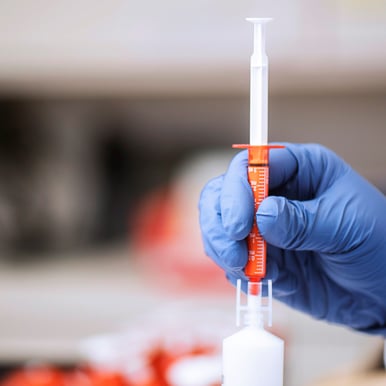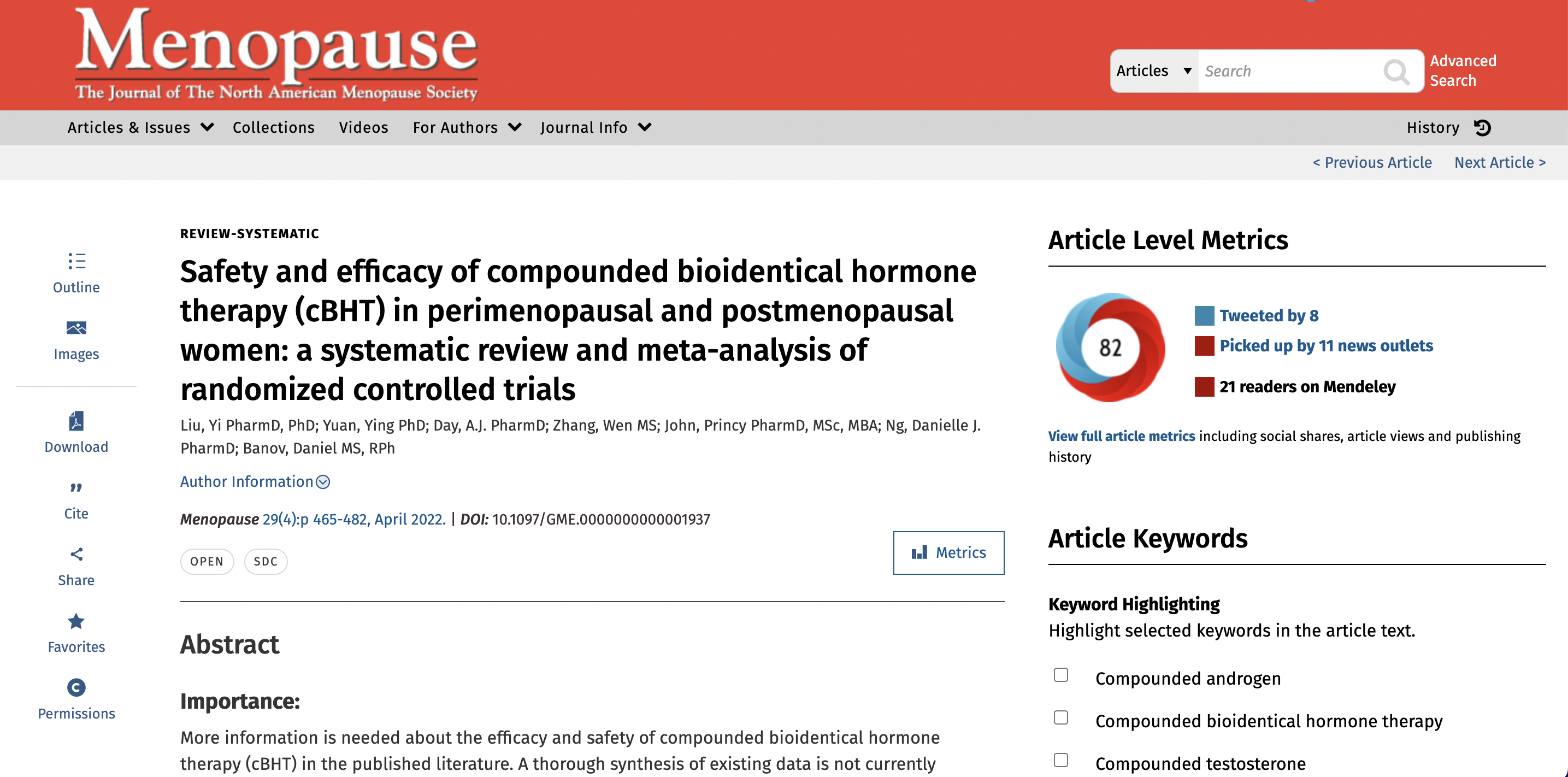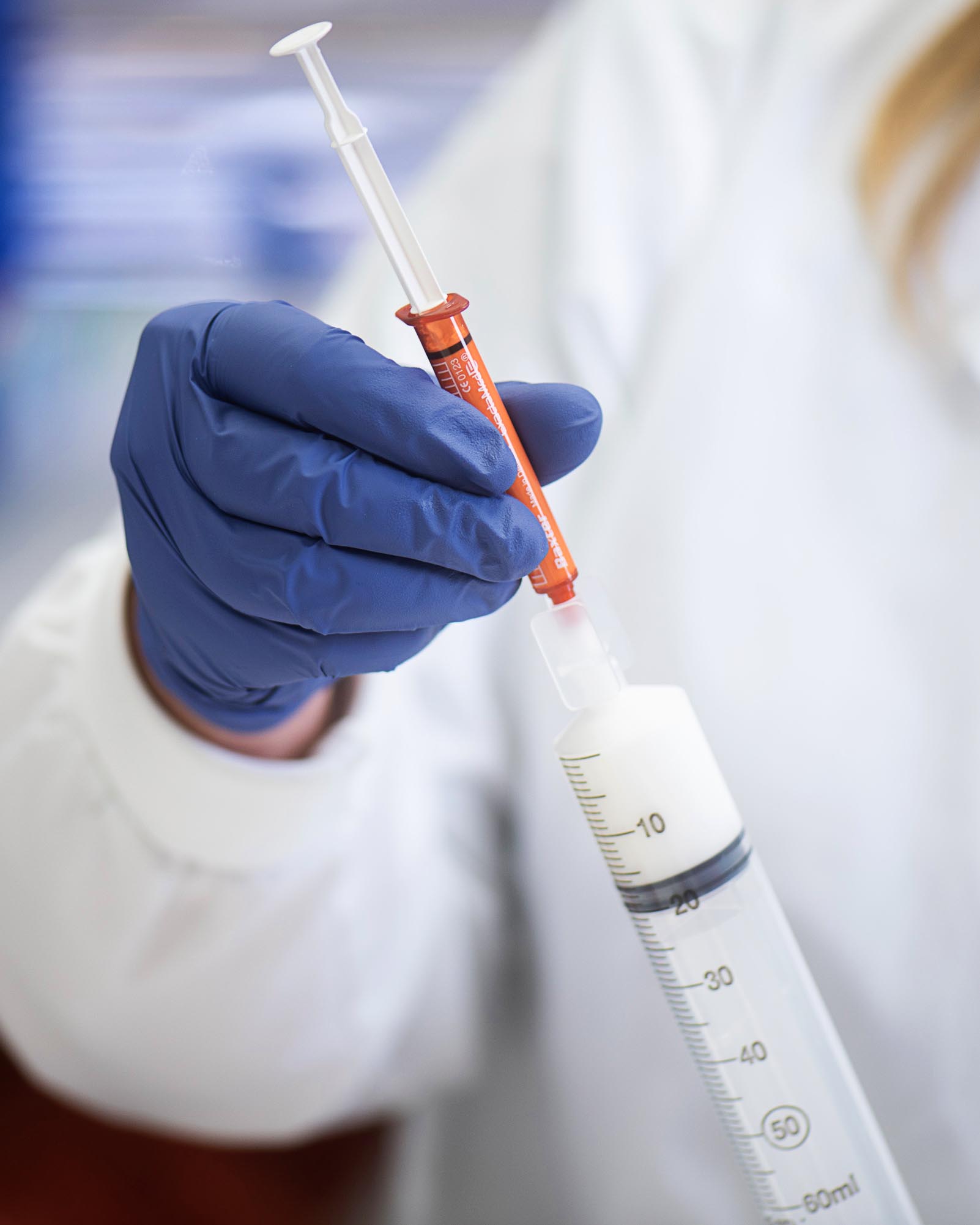"Three years ago, I started menopause and I had horrible hot flashes/sweats and the insomnia ruined my quality of life.” – Laurie T., Bolivar, Ohio.
For women like Laurie, relief from the sometimes-debilitating effects of menopause often can be found in bio-identical hormone replacement therapy – available by prescription as either commercially available manufactured products or as compounded medication prepared by a pharmacist. The aim of either therapeutic approach chosen by the prescriber is to improve the overall health and well-being of the patient, whose hormones are out of balance.

Compounded hormones provide patients with an individualized experience that stems from the customization of not only the strength of the hormones, but also in the delivery system options. Plus, physicians and pharmacists have the ability to combine hormones into a single dosage form through compounding.
Here are the top five reasons doctors may prescribe compounded hormones for women
1. Sleep Disturbances
Sleep is one of the biggest pillars of health. But “sleep complaints increase dramatically during midlife in women, with the prevalence increasing from ~12% to 40% in women during their late 40s and early 50s, consistent with the typical age of the menopause transition.” While nocturnal hot flashes often are to blame, many other factors – from dealing with stress to urinary frequency – can contribute to sleep disturbances. However, the common thread among perimenopausal women is a change in their hormones. Working together, physicians and pharmacists can create a custom balance of hormones that could alleviate this problem. Laurie T. recalled that she found nearly immediate relief. “Within one week of starting progesterone and estrogen topical hormone creams, my hot flashes went away, and I finally started to sleep,” she said.
2. Mood Changes
“Although most women transition to menopause without experiencing psychiatric problems, an estimated 20% have depression at some point during menopause.” Likely, the fluctuations in estrogen during perimenopause contribute to mood changes for some women. Although mood swings and irritability may be mild for some, others have difficulty that can interfere with both home and work life. Debra S. of Wakonda, South Dakota, shared, “I was in such a bad place psychologically – I had an ‘irrational irritability.’ I was angry all the time for no reason. This affected my relationships with my children and my spouse in many negative ways. I hated the monster that I had become. Within the first month of prescribed bioidentical hormones, I noticed big changes. I was more relaxed and calm. I laughed more. I started to feel like my old happy self.” 3. Sexual Dysfunction
3. Sexual Dysfunction
Female sexual dysfunction is multifactorial with both psychological and physical changes contributing to the problem. “Sexual dysfunction may involve decreased interest or desire to initiate activity, as well as decreased arousal or ability to achieve an orgasm during sexual relations.” Plus, vaginal dryness and atrophy can result in painful intercourse, possibly leading to tearing and infection. Achieving hormone balance will increase desire, improve the vaginal tissue and, most importantly, enable women to connect physically with their partner or spouse.
4. Hot Flashes/Night Sweats
“Vasomotor symptoms affect up to 75% of perimenopausal women.” That’s why hot flashes or night sweats are the most common reasons that women seek medical care for menopause. The physiological mechanism of these is not fully understood, but they are believed to originate from the hypothalamus. Because these can cause difficulty with concentration during the day and an inability to sleep at night, it’s important for physicians and pharmacists to work together with patients to balance their hormone levels.
5. Cognitive Decline
“Clinical trials describing the enhancement of cognition with HRT [hormone replacement therapy] support the etiologic role of estrogen in cognitive difficulties expressed by perimenopausal and recent postmenopausal women.” Emerging evidence suggests that cognitive effects are influenced by estradiol and progesterone, and that natural progesterone is more likely to be associated with positive outcomes than synthetic progestin. In this study, menopausal women given oral estradiol or oral progesterone for 90 days had more cognitive activity during verbal processing compared to those given placebo.
Learn more about compounded hormones, stories of patients helped by this approach and the potential threat to this vital therapy on compounding.com.







